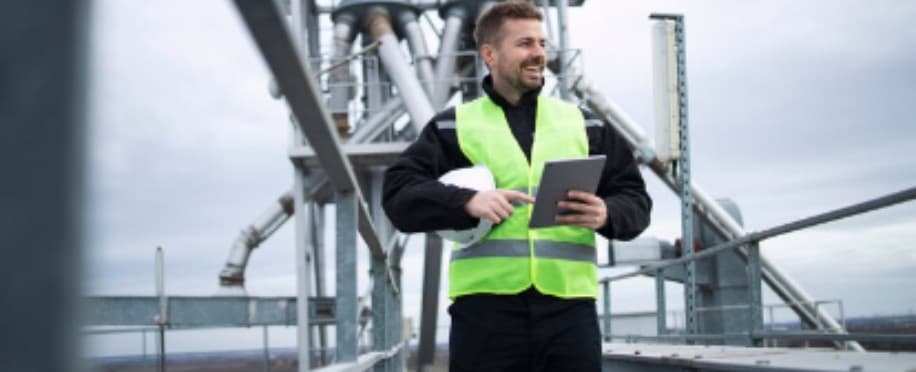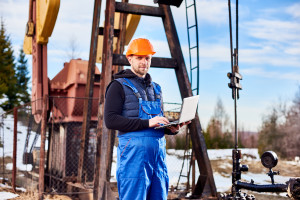Copyright © 2026 lpcentre.com All Rights Reserved. London Premier Centre For Training Ltd Registered in England and Wales, Company Number: 13694538
version: 3.0.1

Posted on : 4/19/2024, 12:02:30 AM
Last Update : 4/19/2024, 12:02:30 AM
The importance of oil and gas project management stems from its essential role in managing the basic industrial sectors. This is because the oil and gas industry is considered one of the most developed and advanced sectors, whether at the engineering or technological level, as well as one of the most challenging and exciting.
As the Oil and Gas Industry has become financially attractive yet risky to implement, it is essential to investigate effective oil and Gas project management.
Please read this article to learn more about the best practices and skills required for successful management and the challenges facing this industry.
By applying some practices and procedures at the administrative level, we achieve successful oil and gas project management. Let's see some of them:
Reduce Emissions During Drilling
Using technologies, such as Green Completions, captures gas produced during well completions that is otherwise vented or flared to reduce emissions.
Reduce emissions while drilling.
Reduce Emissions During Production
Several technologies can be used to reduce emissions from oil and gas production. Such as:
Use enclosed tanks and central or on-site water treatment facilities instead of open pits to reduce fugitive air emissions.
Minimise venting and use a closed-loop process where possible during “blowdowns.”
Install a plunger lift system for removing liquids from wells or “blowdowns.”
Convert to low-emitting engines.
Tighten connections and replace packing to minimise leaks and fugitive emissions.
Use and maintain proper hatches, seals, and valves to minimise air emissions.
Vapour recovery units are used on oil, condensate, produced water storage tanks, and dehydrators.
Reduce emissions of unburned hydrocarbons by routing emissions to flare or combustor or routing dehydrator still emissions to first stage compression.
Lower Ethylene glycol circulation rate to avoid over-dehydrating.
Conserve Water
The availability and cleanliness of water can be Conserved through:
Utilise central water treatment facilities.
Utilise on-site water treatment facilities, such as 3-phase separators that separate liquids, condensates, and gases from each other. These separators help filter out heavy particles to reuse the water.
Less Toxic Materials
It is achieved by Substituting organic additives, polymers, or biodegradable additives for oil-based mud to reduce toxicity. Or Buy less volatile solvents and liquid chemicals in bulk and keep containers covered. Or even lubricate it with mineral oil and lubra-beads instead of diesel oil.
Reuse Materials
Reusing drilling fluids or some materials, such as drilling mud in some other sites for spraying or clogging, is one of the most important management practices for the success of oil and gas project management.
High-Efficiency Equipment
Facility efficiency can be increased by Replacing high-bleed valves with compressed air and electric or low-bleed valves, installing or converting gas-operated pneumatic devices to electrical, solar, or compressed air devices, and more.
Monitoring and Maintenance
Regular maintenance and inspection programs for compressors, valves, separators, and lines can reduce emissions and leaks. Infrared technologies, ultrasound, vapour analysers, and measuring devices are used.
Dust and Tailpipe Emissions
Many measures are used to reduce Dust and Tailpipe Emissions. They are below:
Water or chemical treatments such as magnesium chloride and calcium chloride are applied in cleaning services.
Restrict vehicle speeds to 10 mph on-site.
Vans and buses will shuttle employees to the worksite instead of private cars.
Cover or reclaim excavated or inactive storage piles after activity ceases.
Wash equipment and reclaim excavation faces.
Use of telemetry techniques
Well, automation can remotely monitor and control production without the need to visit the site.

Oil and gas project management is a complex sector resulting from hard-working conditions and constant fluctuations in markets and resources. Accordingly, project managers must have specific skills in several areas.
In the list below, we will mention to you several skills that a project manager must possess to scope management of a project of considerable size and a high degree of difficulty:
Technical skills
Technical skills are the base for a project manager to make good decisions. The manager must be familiar with the various technologies and applications related to the production process and modify them directly.
Materials
The project manager requires skills in all materials used in construction and other materials that can be used on-site.
Such as (material resistance under some mechanical stresses, fire conditions, and material behaviour under extremely negative temperatures.
Chemicals
The project manager must know chemicals to understand the process of extracting oil or gas and the different states of those materials under various pressure and temperature conditions. This knowledge will enable him to choose the most adapted machines and devices according to the production process requirements.
Piping Class
Knowing the piping class characteristics and the difference between carbon steel and stainless steel is very important in Oil and Gas project management. If the acidity of the oil or gas is different, different piping classes are used.
Planning
The Project Manager shall consider several parameters to create realistic planning, including relying in this planning on a practical schedule and an optimised budget, such as (technological techniques used, building an integrated, skilled, and empowered team so that each one of them knows his task required for implementation).
In addition to developing techniques for executing project work, including scheduling drilling, fabrication, pipe installation, procurement, and other matters, the sequence of all the activities shall be correct and consider the characteristics of each task.
Human Management
Usually, oil and gas projects can gather thousands of people in the offices and on-site. All of them need accommodation, food, water, and other necessities to live. This makes it challenging for the administration to secure housing for these workers, which is often near oil fields or gas stations to reduce transportation costs.
In cooperation between the manager and the human resources (HR) department, the number of workers required in each workshop to complete the tasks and the distribution of salaries, annual leave, bids, airline tickets, and other benefits are determined.
The client might require changes during the project lifecycle in any industry, including oil and gas. Change management is the key to controlling a project's cost.
Therefore, the project manager shall implement a process to analyse the required changes, estimate how those changes will affect time and cost, and inform the client.
Quality Management
Project quality management is usually based on observing all daily audits and inspections. Therefore, the project manager must be a leader in health, safety, and environment and ensure that all tasks are managed according to these rules.
Risk Management
Risk management is critical in Oil & Gas projects because the sites are in extreme conditions in Siberia, for example, and the workers cannot work more than 6 hours on-site daily. There is also an essential risk of the blast during execution and testing.
Progress Management
Progress should be analysed regularly to identify the problem and its solution. A log with all the tasks and their status is used to identify issues in the project. The project manager can quickly identify problems in the project's progress once he has applied the 4Rs method to solve them.
4Rs are:
Reaction: Raising the issue to management.
Read the problem: analyse the problem.
Response: Find a solution.
Resolve: apply the solution.
Green Management
Here is the most critical question or skill: How can the project's environmental impact be reduced from design and planning to implementation?
During the design phase, if the solution does not meet environmental criteria, it is certainly subject to rejection. Then, during the implementation phase, we will think about how to manage and recycle manufacturing waste as much as possible. This is possible either by relying on clean energy sources to secure energy requirements or even treating all the water generated from the project that may be mixed with some hazardous materials or chemicals before being released into the environment.
During the operation phase, all leaks that may occur must be controlled and managed very quickly to avoid any environmental pollution. This is done using the latest sensor, alarm, and building control systems (BMS).
Project managers are responsible for planning, coordinating, implementing, and tracking company-wide projects, as well as setting plans and agreements with clear goals.
As a Project Manager, he will need to have a strong understanding of engineering to prepare detailed project scopes and schedules, calculate costs, ensure work is implemented according to engineering and technical standards, policies, and procedures, and provide successful leadership on projects.
He must also apply his knowledge and expertise to embrace safety on-site and employ proper business and environmental ethics. The typical responsibilities of a project manager might involve:
Developing detailed implementation plans
Implementing forecasting, planning, scheduling, and dispatching processes
Working with various internal teams to build plans
Evaluating survey results
Coordinating project activities
Ensuring the provision of necessary resources
Conducting audits
Ensuring performance targets are met
Successful companies continuously work to improve their general project management skills, especially those in the oil and gas industry. However, they face some challenges.
There is a shortage of technical talent in the industry, and is estimated to become more acute over the next few years as more experienced engineers retire, further complicating the issue.
With the increase in demand for oil and gas resources, companies are resorting to exploration and production in frontier and unconventional resource areas, and projects are becoming more complex.
The company will not deal with just one project at a time, perhaps hundreds of complex projects. So, not only prioritising financial goals and risks but also based on the availability of resources such as (engineering talent) to manage several project teams.
Scoping projects is an important skill, especially for smaller companies which deliver large, complex projects. This is because it contains many smaller projects.
Having a lot of experience in oil and gas project management is necessary, especially when dealing with planning, budgets, human resources, and risk management. Technical knowledge of materials and environmental constraints is also required, as well as remembering the end of attention to the international dimension of the project.
Given the above, we advise you to attend the Oil and Gas Project Management Training Courses in London affiliated with the London Premier Centre. If it were up to you, the goal would be to increase the reliability of your decisions.